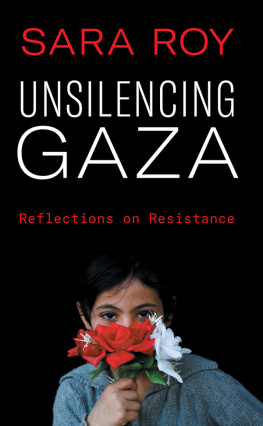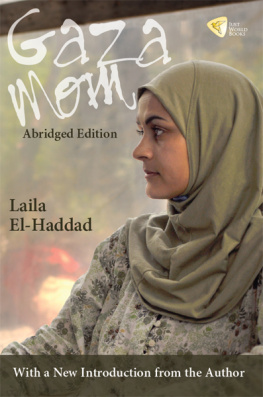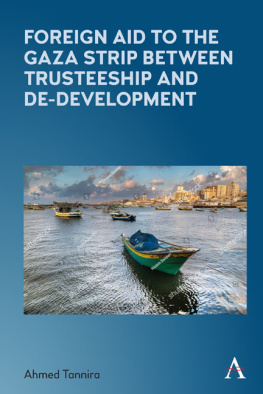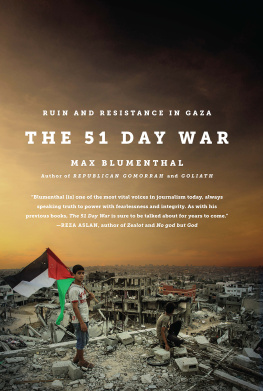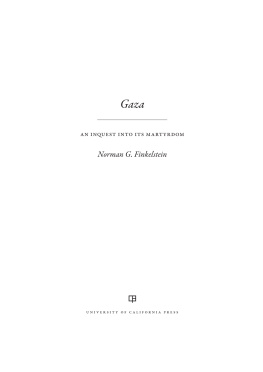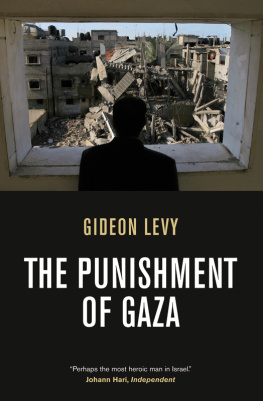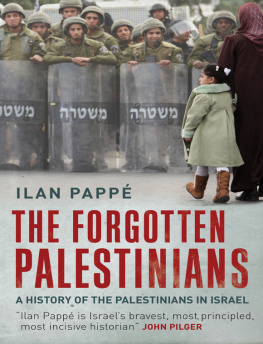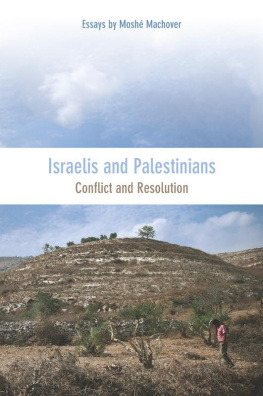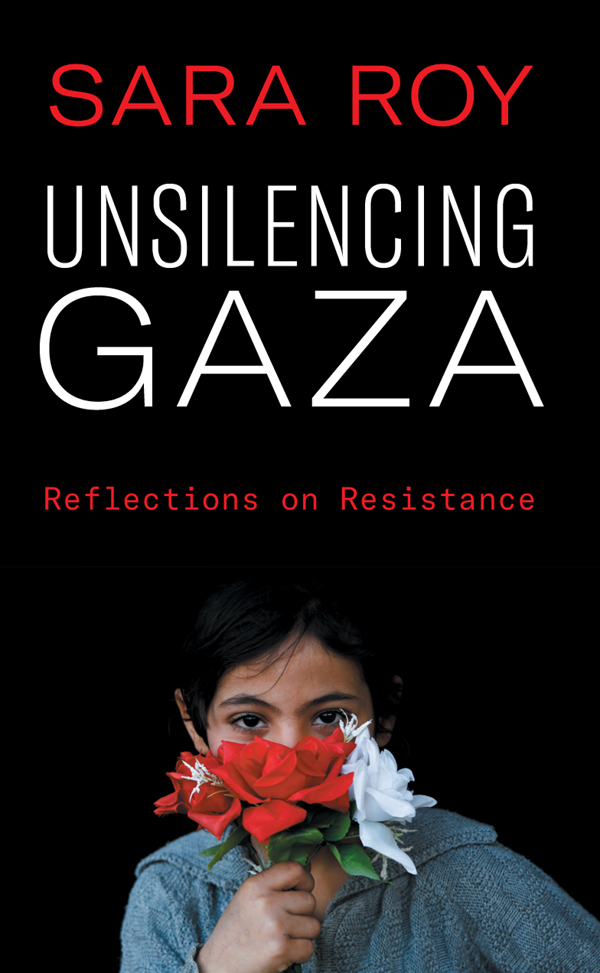Contents
Guide
Unsilencing Gaza
Roy is humanely and professionally committed in ways that are unmatched by any other non-Palestinian scholar.
Edward W. Said
Roy is the leading researcher and most widely respected academic authority on Gaza today.
Bruce Bennett Lawrence, Nancy and Jeffrey Marcus Humanities Professor of Religion at Duke University
A compelling study that continues the authors investigation of the dehumanizing and destabilizing effects of the Israeli occupation on Palestinian politics and society. Essential reading for those intent on understanding both the causes and the consequences of this conflict.
Irene Gendzier, Professor Emerita, Boston University and author of Development Against Democracy
For several decades, Sara Roy has been bringing her unique moral authority to bear on the searing injustice that continues to be Palestine. This indispensable collection confronts us all with the inhuman conditions of life for the people of Gaza, tempered by the courage with which Roy explores it, her insistence on the unbreakable link between Jewishness and justice, and her ultimate faith in the resilience of the Palestinian people.
Jacqueline Rose, Professor of Humanities, Birkbeck Institute for the Humanities
Unsilencing Gaza
Reflections on Resistance
Sara Roy

First published 2021 by Pluto Press
345 Archway Road, London N6 5AA
www.plutobooks.com
Copyright Sara Roy 2021
The right of Sara Roy to be identified as the author of this work has been asserted in accordance with the Copyright, Designs and Patents Act 1988.
British Library Cataloguing in Publication Data
A catalogue record for this book is available from the British Library
ISBN 978 0 7453 4136 1 Hardback
ISBN 978 0 7453 4137 8 Paperback
ISBN 978 1 7868 0825 7 PDF
ISBN 978 1 7868 0826 4 EPUB
ISBN 978 1 7868 0827 1 Kindle
This book is printed on paper suitable for recycling and made from fully managed and sustained forest sources. Logging, pulping and manufacturing processes are expected to conform to the environmental standards of the country of origin.
Typeset by Stanford DTP Services, Northampton, England
Simultaneously printed in the United Kingdom and United States of America
In memory of Peter Gubser, Augustus Richard Norton and Hilda Silverman
Contents
List of Abbreviations
ACTAAnti-Terrorism Clarification Act
AIPACAmerican Israel Public Affairs Committee
ANERAAmerican Near East Refugee Aid
BDSBoycott, Divestment and Sanctions
CMWUCoastal Municipalities Water Utility (Gaza)
COGATCoordinator for Government Activities in the Territories
EUEuropean Union
FAO(UN) Food and Agriculture Organisation
GMRGreat March of Return
GRMGaza Reconstruction Mechanism
ICAHDIsrael Committee Against Home Demolitions
IDFIsrael Defense Forces
IFRIInstitut franais des relations internationales
MBMuslim Brotherhood
MEPPMiddle East peace process
MERIPMiddle East Research and Information Project
MFAMinistry of Foreign Affairs (Israel)
MMUPMaterials Monitoring Unit Project
MOHMinistry of Health (West Bank)
NISnew Israeli shekel, currency in Israel and Palestine
OPEOperation Protective Edge
PAPalestinian Authority
PCBSPalestinian Central Bureau of Statistics
PEPParis Economic Protocol
PHRIPhysicians for Human RightsIsrael
PIJPalestinian Islamic Jihad
PLAPalestine Liberation Army
PLOPalestine Liberation Organization
PWAPalestinian Water Authority
RAORefugee Affairs Officer
UNUnited Nations
UNCTADUnited Nations Conference on Trade and Development
UNDPUnited Nations Development Program
UNICEFUnited Nations Childrens Fund
UNOCHAUN Office for the Coordination of Humanitarian Affairs
UNRWAUnited Nations Relief and Works Agency for Palestine Refugees in the Near East
USAIDUnited States Agency for International Development
WFPWorld Food Programme
WHOWorld Health Organization
Acknowledgments
Over the many years of research and writing represented in this book, there have been more people than I can mentionteachers, mentors, colleagues, friends and students throughout the worldwho deserve my profound thanks for their commentary, counsel and constant support. I shall always be in their debt.
I do want to acknowledge just a few, each of whom, in their own way, played a significant role in my research: Elaine Hagopian, Herbert Kelman, Martha Myers, Irene Gendzier, Lani Frerichs, Norman Finkelstein, Marc Ellis, Walid Khalidi, the late Fr. Vincent Martin OSB, Denis Sullivan, Noam Chomsky, William Granara, Lenore Martin, Susan Kahn, Brian Klug, Afif and Christl Safieh, Husam Zomlot, Salim Tamari, Desmond Travers, Karam Dana, Nubar Hovsepian, Alexandra Senfft, Brigitte Schulz, Ellen Siegel, Paul Aaron, the late Thomas Mullins, the late Allen Bergson, Deirdre Bergson, the late Edward Said and Roger Owen, the late Russell Davis and Donald Warwick, the late Haidar Abdel Shafi, Huda Abdel Shafi, the late Hatem Abu Ghazaleh, the late Eyad el-Sarraj and Naseer Aruri, the late Alya Shawwa, Talal Abu Rahme, Amira Hass, Ruchama Marton, the late Dan Bar-On, Ibrahim Barzak, Raji Sourani, Omar Shaban, Adnan Abu Hasna, Charles Shammas, Hiromu Odagiri, Takanori Hayao, Mari Oka, Thomas and Patricia Neu, Marilyn Garson, Brian Moore, Chris Gunness, Linda Butler, Michelle Esposito, Deena Hurwitz, Hilary Rantisi, Susan Akram, Sherman Teichman, Anne Joyce, Rhona Davies and the late Peter Johnson, the late Ellen Greenberg, Kim Burnham, Leticia Pena, Lisa Majaj, Nancy Murray, Angela Bader, Souad Dajani and Marie Francis.
The late Augustus Richard Norton, Peter Gubser and Hilda B. Silverman to whom this book is dedicated, were pivotal to my learning and thought, dear friends and cherished colleagues who are deeply missed.
A special note of gratitude to Roger van Zwanenberg for his years of support and friendship.
Just as I was completing this manuscript, Meron Benvenisti passed away at the age of 86. I am especially grateful to Meron who, more than anyone, set me on a trajectory that would become my lifes endeavor. As a young doctoral student, I read a report that he had written on US economic assistance to the West Bank and Gaza as part of the West Bank Data Base Project, which he founded and directed. I was struck by his argument, which was both compelling and courageous especially at that time (1984). His paper and our many subsequent conversations helped me formulate my doctoral research and was the seed of all my future work. Meron was prophetic, brilliant and principled, among the most decent human beings I have known. He spoke truth to power throughout his life. He was consistent and unafraid. I shall always be grateful to him.
A special note of thanks to the superbly talented staff at Pluto Press: my editor, Neda Tehrani, Melanie Patrick, Robert Webb, Dave Stanford, Jeanne Brady, Tania Palmieri, Emily Orford and David Shulman.
I also want to extend my sincere thanks to the following individuals and publications for permission to reprint the articles contained in this book (the original source is cited in each chapter). They are:
Center for Contemporary Arab Studies, Georgetown University

